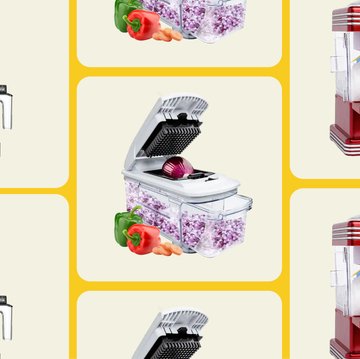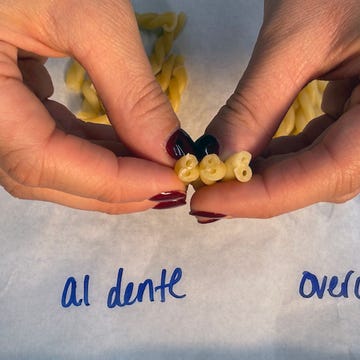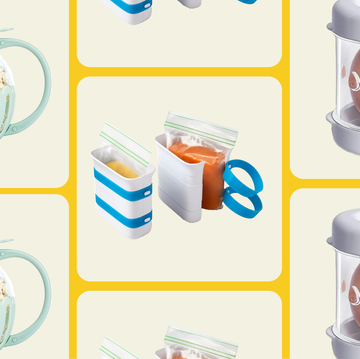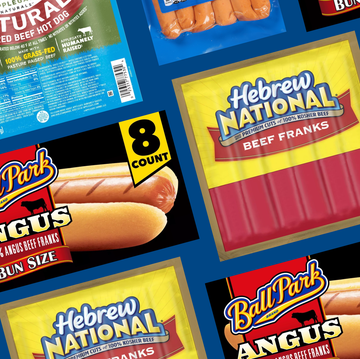Popcorn is one of the most versatile snacks in the world. Who would have thought that a simple popped kernel would turn into a movie theater staple? The crispy, crunchy snack is the ideal canvas for any seasoning combination—whether you want it sweet, salty, buttery, or cheesy (or a mix!).
But there are a lot of contradicting opinions about the nutritional merits of popcorn. Some experts argue that it’s one of the healthiest snack foods available. Other people claim that it’s too carb-heavy, too fatty, too salty. And brands like Skinny Pop position themselves as a healthier alternative to the real thing.
So what exactly is the truth? Is popcorn actually a good-for-you snack, or is it something you should avoid if you're trying to eat better? We consulted health and nutrition experts to unpack all of the pros—and cons—of everyone’s favorite movie theater snack.
What Are The Health Benefits Of Popcorn?
Each kernel of popcorn contains a high concentration of health benefits. Since it’s whole grain by nature, it is filled to the brim with fiber. In fact, according to the U.S. Department of Agriculture (USDA), one three-cup serving of popcorn fulfills one-third of the fiber requirements for most adolescents and adults.
Fiber is an essential part of a balanced diet because it prevents blood sugar spikes and promotes a healthy flora of good bacteria in your gut. Harvard University also argues that fiber lowers the risk of developing health conditions like heart disease and diabetes.
According to experts, another major benefit of popcorn is the high concentration of polyphenols. These micronutrients have strong antioxidant properties that help reduce your risk for chronic illnesses. “It’s packed with antioxidants, especially polyphenols, which can help fight inflammation and support heart health," says Dr. Elias Ortiz, Chief Bariatric Surgeon at Elias Ortiz & Company.
From a macronutrient perspective, popcorn on its own is an extremely low calorie food. One serving of three cups clocks in at just under 100 calories. However, it shouldn’t be considered a low-carb food. Popcorn contains six grams of carbohydrates per serving and only one gram of protein. While it’s not necessarily approved for a ketogenic diet, popcorn is by no means an unhealthy food on its own.
What Are The Health Concerns Of Popcorn?
Popcorn kernels on their own can be considered a healthy food, but its most popular preparations are anything but. “Not all popcorn is created equal," says Elisa Kosonen, RHN, CHC, NNCP. "The biggest concerns come down to how it’s made and what’s added to it."
Because popcorn is relatively mild in flavor, movie theaters and store-bought popcorn brands will be heavy handed with their seasoning applications to end up with the snacks we know and love. It’s delicious, sure, but it also changes the macronutrients significantly.
"A lot of the pre-packaged or movie-theater versions are loaded with butter, salt, and artificial flavorings, which can turn a light snack into something super high in calories, sodium, and unhealthy fats," Ortiz says.
Take a store bought bag of microwave popcorn for example: one serving of Orville Redenbacher's Popcorn with Movie Theater Butter has 11 grams of fat and 380 milligrams of sodium. The same nutrients for plain popcorn, on the other hand, are next to zero.
One of the biggest nutritional concerns when it comes to popcorn, according to Michelle Routhenstein, Cardiology Dietitian at EntirelyNourished.com, is the sodium. "Consuming too much sodium regularly may contribute to high blood pressure and increase the risk of heart disease and kidney problems," she says.
Another thing to worry about? The packaging. "Microwave popcorn is often packaged in bags that may contain chemicals, such as perfluorooctanoic acid," Routhenstein adds. "These chemicals can potentially transfer into the popcorn, and regular consumption could lead to negative health effects."
It’s especially easy to oversalt popcorn because of its barebones flavor. But increased sodium intake can lead to high blood pressure, heart disease, and even cause strokes.
How Can I Make Popcorn Healthier?
You may be used to popcorn slathered in butter, sugar, and salt. But if you’re looking to eat a healthy, low-calorie snack, you should stay away from the stuff they sell at the movie theater.
In terms of cooking popcorn, many health-conscious cooks swear by their air poppers. This appliance uses hot air, rather than oil, to cook the kernels. While it does eliminate the need for oil, it’s also not a make or break decision when it comes to the overall health of your snack.
According to the USDA, a three-cup serving of popcorn popped in oil is only 30 more calories than the same amount of air popped popcorn. And since you only use a tablespoon or two of oil to make a batch of stovetop popcorn, the nutrition difference is essentially negligible.
What you can do to make popcorn healthier has to do with the way you season it. Rather than rely on melted butter and lots of salt to flavor your snack, it’s a wiser choice to lean on other sources for seasoning.
Kosonen suggests tossing your popped popcorn in nutritional yeast for a "cheesy, umami flavor"—and the added B vitamins certainly don't hurt. Routhenstein recommends reaching in your spice cabinet to add an extra boost of flavor. "If you’re craving something savory, Italian seasoning (think basil, oregano, garlic powder, and parsley) is a great way to go," she says.
















